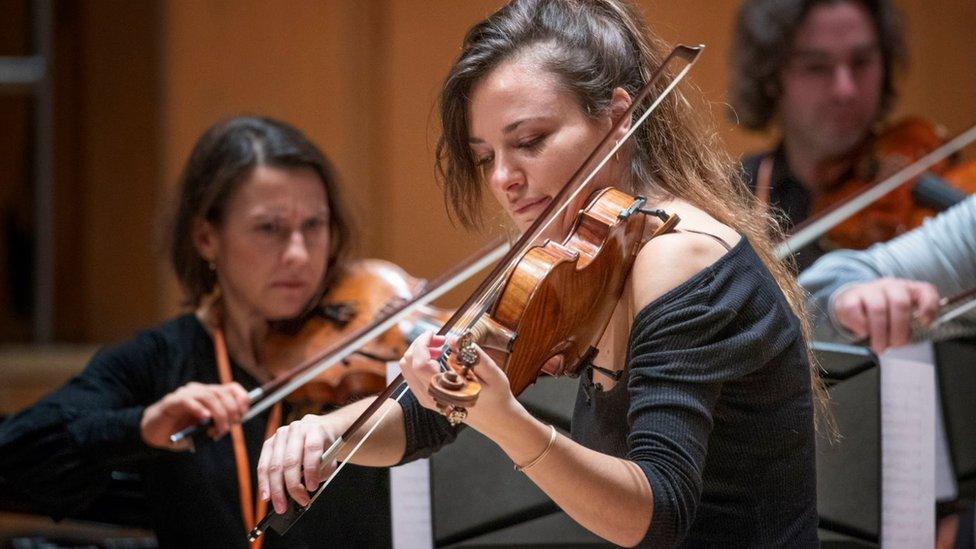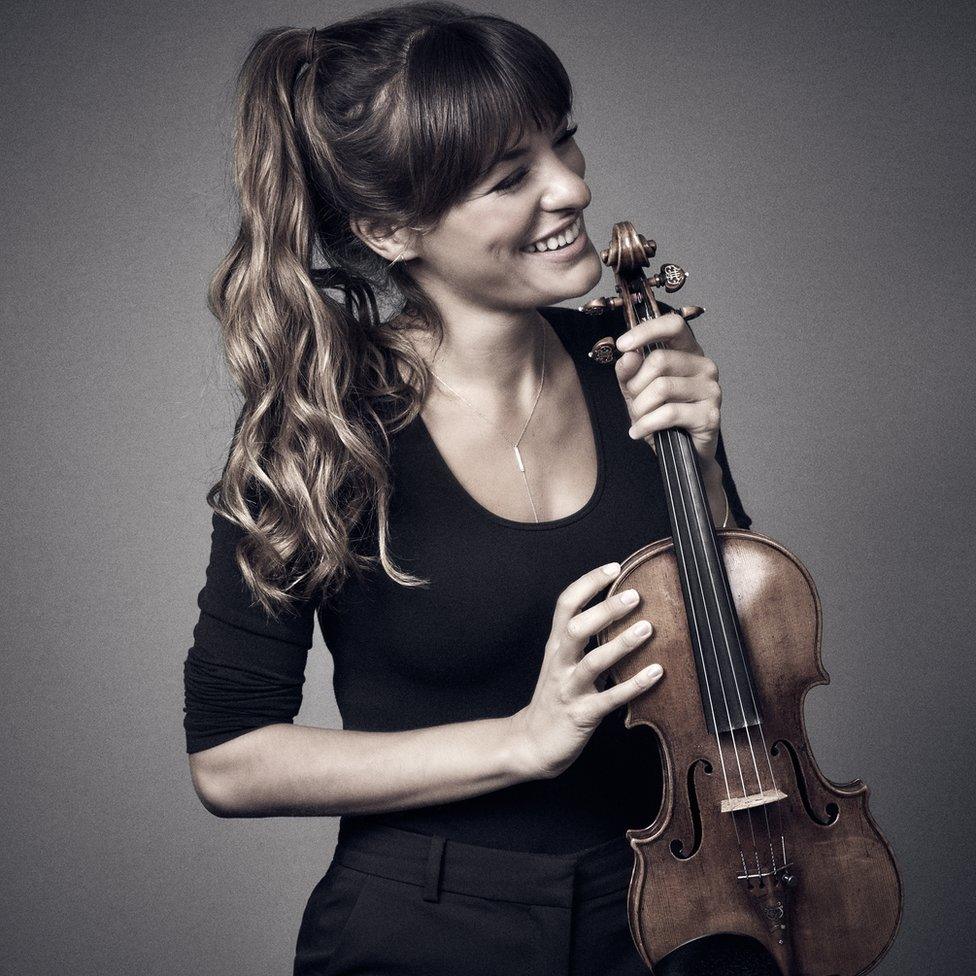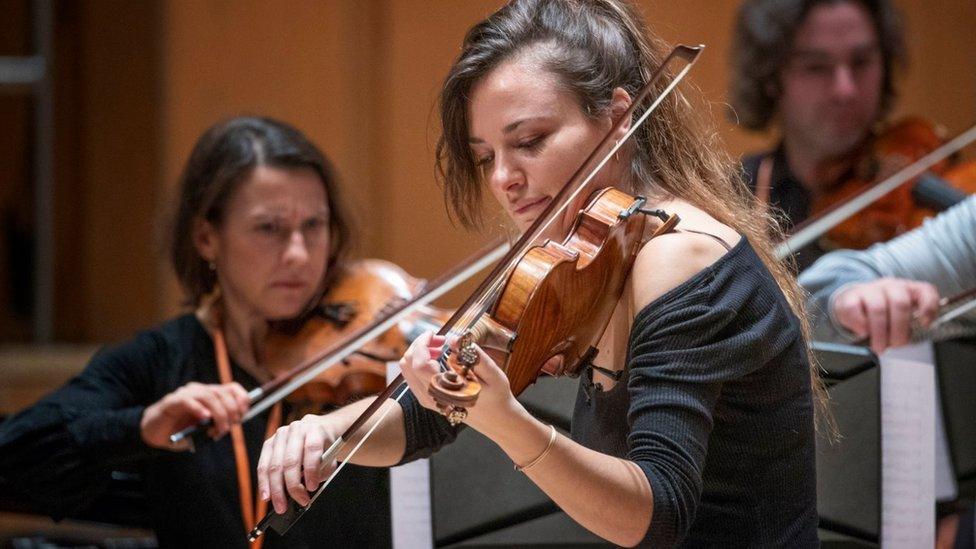Coronavirus: Violinist Benedetti offering free online music sessions
- Published

Nicola Benedetti is passionate about sharing her talent with young people
Scottish violinist Nicola Benedetti has assembled a team of musicians to offer three weeks of free music classes online.
Beginning on 11 May, they will culminate in a huge online concert at the end of the month.
The Ayrshire-born musician already offered online music classes through her own Benedetti Foundation.
But the lockdown made her wonder whether they could reach an even wider audience on social media platforms.
Although the sessions are free, donations are welcome.
Nearly 800 people have signed up so far to teach or play, external, including fellow musicians The Ayoub Sisters.
Ms Benedetti says she's been passionate about sharing her music since winning BBC Young Musician of the Year in 2004, at the age of just 16.
"I feel like I can do it well," she said. "I have the capability of being a galvanising type of person, I can convince a lot of people to get involved with something and I'm really serious about getting a message across to young people.
"I think if you have the chance to do something well, you have a responsibility to society to at least try and put some time and effort into the thing you have some talent for."

The violinist held sessions with young people before the lockdown
The violinist is patron of a number of musical organisations including Sistema Scotland, the National Children's Orchestra, Music in Secondary Schools Trust, The Royal Conservatoire of Scotland and the European String Teachers' Association.
Her new album, a collection of pieces by Elgar, will be released digitally on 15 May. It includes Salut D'amour, the first piece of music she recalls making her cry at the age of six. It was around then that she and her sister Stephanie first persuaded their mother to allow them to learn violin.
She still teaches it to young musicians online, and says it often produces the same emotions.
The supporting concert tour to promote the album won't happen, and she's worried about how long it will be before she can perform in concert halls again.

"The reality for me is of four months of concerts, gone in a heartbeat," she said. "We have an arrogant sense of control - not everyone, but in the professional world I inhabit. We think we can determine what happens next year, that's the attitude and something like this is humbling, it's very humbling."
She added: "Our business requires bringing great groups of people together. The margins for concert halls, they're that size for a reason, you want as many people as possible and if you cut that number in half, things don't add up so well. You won't even cover your costs, never mind make a profit.
"When budgets don't stand up, there's only so much you can expect people to do for free or for less. Revenue has to come from somewhere and if the loss is too great, concerts can't go ahead. It's a simple equation.
"As much as the will is so intense, and people are desperate to get back to playing, there may be an economic reality to that which makes it last longer than we are realising."
- Published4 January 2020
